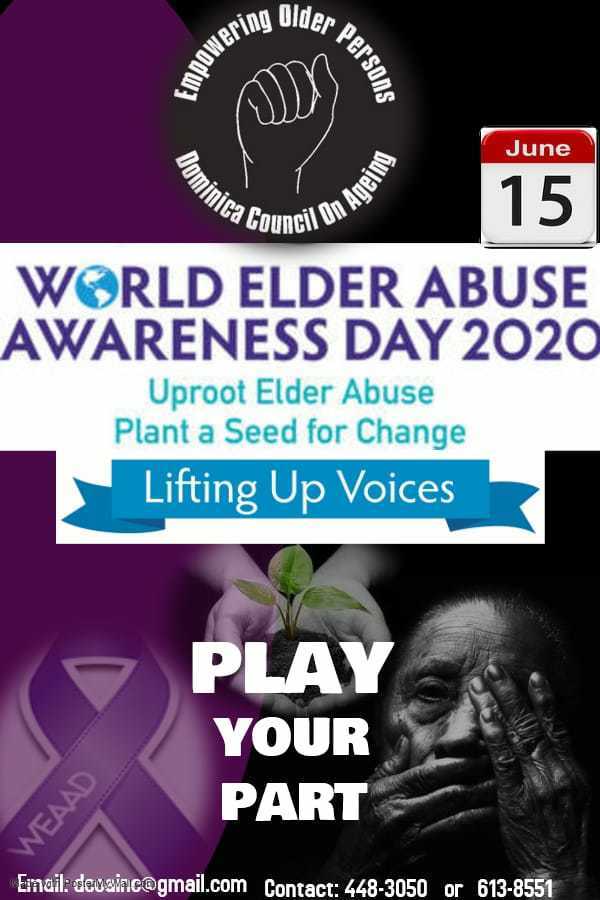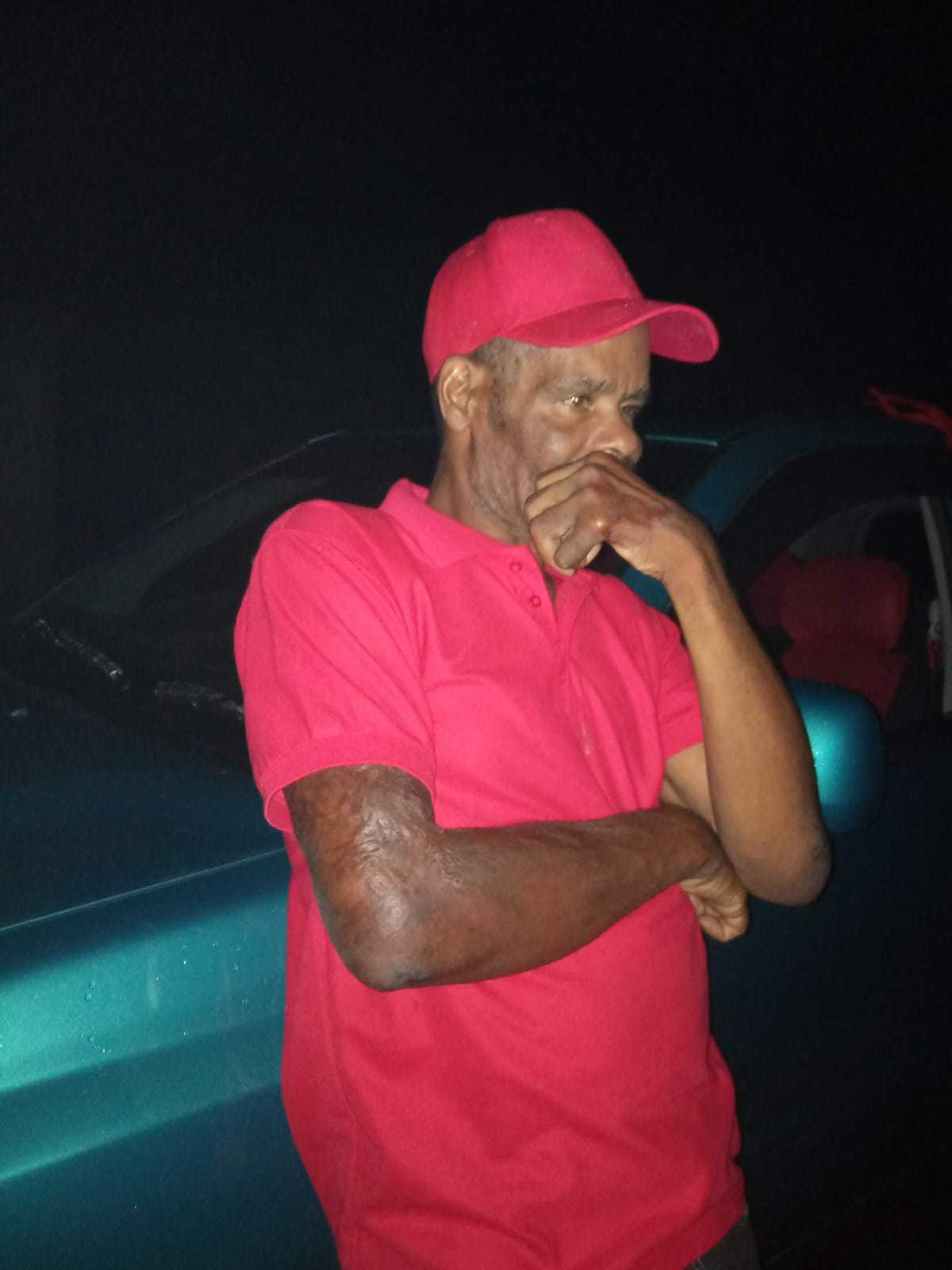
On 15 June 2020, the Dominica Council on Ageing (DCOA) joins organisations, Government agencies, professional community groups and institutions around the world to observe World Elder Abuse Awareness Day (WEAAD).
In 2006, the International Network for Prevention of Elder Abuse (INPEA) designated June 15 as World Elder Abuse Awareness Day (WEAAD), to raise awareness of elder abuse and highlight ways to challenge such abuse.
WEAAD was recognised as a United Nations Day by the General Assembly in its resolution A/RES/66/127 adopted in 2011.
“Several senior citizens are abused by people who are close to them, relatives, caregivers,” said Ophelia Marie, president of the DCOA. “Abuse is in the form of neglect and it could be financial, emotional, physical, psychological and other types of abuse.”
Although there is no data on levels of elder abuse in Dominica, Ms. Marie said the World Health organisation (WHO) has estimated that one in six people 60 years and older have experienced some form of abuse in the community setting during the past years.
Declaring elder abuse a serious public health issue, the United Nations has acknowledged that it is “deeply concerned” about the situation affecting older persons around the world especially since levels of elder abuse will increase as the population of older persons rises.
Because of the COVID-19 pandemic and the need to practice social distancing and other protocols, in its observance of WEAAD-2020, the DCOA will focus on the media.
One of the main highlights of the day will be a radio address on Monday 15 June by Honourable Dr. Addis King, Minister of Youth Development and Empowerment, Youth at Risk, Gender Affairs, Seniors’ Security, and Dominicans with Disabilities.
In its observance of WEAAD, the DCOA has planned other radio addresses and programmes as well as newspaper articles highlighting the theme of WEAAD-2020 which is “Lifting up Voices”.
“We are also using the day to draw attention to the situation of the older persons: how recognised are they; how included are they in the social fabric of society; what happens to them in any special way because they are senior citizens; how much are they included in decision making, or expressing their views on national issues,” said Ms. Marie. “We really need to look at the way we treat our seniors.”






